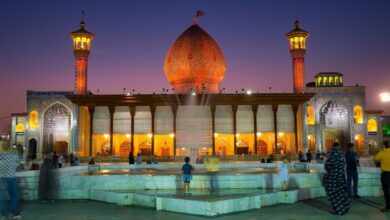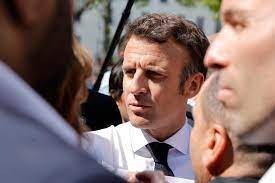Brazilian Leadership Launches South American Summit to Save Amazon Rainforest
As they kick off a summit on the largest rainforest in the world on Tuesday, Brazilian President Luiz Inacio Lula da Silva and other South American leaders are under pressure to provide innovative ideas to rescue the ailing Amazon.
near the two-day conference of the Amazon Cooperation Treaty Organization in Belem, near the mouth of the Amazon river, Brazilian leaders have committed to explore an ambitious plan to curb deforestation.
The eight nations that make up the group—Bolivia, Brazil, Colombia, Ecuador, Guyana, Peru, Suriname, and Venezuela—who share the Amazon basin established it in 1995—are meeting for the first time in 14 years.
The immense Amazon, home to 50 million people, hundreds of billions of trees, and an estimated 10% of the world’s biodiversity, is an essential carbon sink that helps to slow global warming.
However, experts warn that deforestation is bringing the world’s forests perilously close to a “tipping point,” beyond which trees will begin to die and begin to release carbon instead of absorbing it, with disastrous effects on the climate.
The region’s nations are committed to “not letting the Amazon reach a point of no return,” Brazil’s environment minister Marina Silva said during a ministerial gathering before to the summit.
Brazilian Foreign Minister Mauro Vieira predicted that the meeting will result in a common statement that would provide the eight participating nations “instructions” on how to carry out “new targets and new tasks” to stop deforestation in the rainforest.
The working draft “was negotiated in record time—just over a month,” the speaker said.
Colombia and Brazil: Competing Priorities
Cattle ranching is the principal cause of deforestation, but it is also fuelled by a murky combination of land grabs, corruption, and organized crime, whose tendrils also reach the illicit trade in narcotics, weapons, gold, and lumber.
The damage has already wiped off almost one-fifth of the rainforest in Brazil, which is the largest supplier of cattle and soy in the world and is home to 60% of the Amazon.
Environmental organizations are urging all eight nations to ratify Brazil’s commitment to end illegal deforestation by 2030, however authorities from the host nation have suggested that these discussions may take longer.
Every nation has its own dynamics. We don’t operate by imposing one viewpoint. It’s a mutually beneficial, ongoing process,” Silva remarked on Monday.
Meanwhile, Brazil, whose state-run oil company, Petrobras, is controversily looking to explore new offshore blocs at the mouth of the Amazon river itself, and oil-rich Venezuela are pushing other nations to abide by their pledges to ban all new oil exploration.
Silva praised the efforts of both presidents.
She remarked, “We have two presidents coming in with strong commitments: Lula with zero deforestation and the Colombian president with zero petroleum.”
Testing Lula
The conference is a crucial test for seasoned socialist Lula, who presided over Brazil from 2003 to 2010 and took government again in January with the campaign slogan “Brazil is back” in the battle against climate change after his far-right predecessor Jair Bolsonaro’s four years of escalating damage in the Amazon.
The establishment of an international police task force for the area and a scientific research organization fashioned after the Intergovernmental Panel on Climate Change (IPCC), the advisory body to the UN climate negotiations, were among Brazil’s stated objectives for the summit.
The conference serves as a kind of practice run for the UN climate negotiations known as COP30, which Belem will also host in 2025.
The meeting “should deliver concrete results if the region is serious about becoming a leader in climate action,” according to US-based environmental organization Avaaz.
Indigenous organizations asked South American governments to act decisively, noting that protected reserves serve as essential barriers to the logging of the world’s forests.
Nemo Guiquita, president of the Ecuadorian Indigenous organization CONFENIAE, told AFP that “our struggle isn’t just for Indigenous peoples, it’s for the entire world, so future generations can survive on this planet.”







